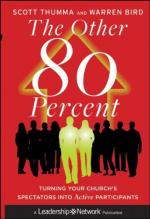|
This section contains 8,206 words (approx. 28 pages at 300 words per page) |

|
SOURCE: “The Politics of Taste in the Spectator,” in The Eighteenth Century: Theory and Interpretation, Vol. 35, No. 1, Spring 1994, pp. 46-63.
In the essay that follows, Dykstal offers a Marxist analysis of the Spectator's role in defining “taste” as an “organizing principle of the public sphere,” in which private rectitude is publicly recognized. In this formulation, the critic contends, taste “rests, ultimately, not on the private apprehension of beauty but on the public defense of it.”
The basic error of all materialism in politics—and this materialism is not Marxian and not even modern in origin, but as old as our history of political theory—is to overlook the inevitability with which men disclose themselves as subjects, as distinct and unique persons, even when they wholly concentrate upon reaching an altogether worldly, material object.1
One of the surprises of Terry Eagleton's magisterial The Ideology of the Aesthetic is...
|
This section contains 8,206 words (approx. 28 pages at 300 words per page) |

|


